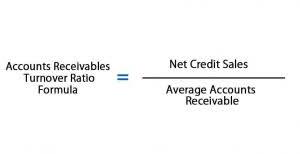
To ensure success as a full charge bookkeeper, you should have advanced knowledge of bookkeeping and accounting systems, excellent project management skills, and a good eye for detail. A skilled full charge bookkeeper efficiently handles all the accounting needs of the company, streamlining the business. Full charge bookkeepers are responsible for handling all the accounts of a small to medium-sized business. They hold more responsibility than a regular bookkeeper and report directly to the company owner or financial manager. The major difference is that full service bookkeepers have more managerial and accounting related duties. Hopefully we’ve given you a better grasp of these differences and nuances between bookkeeping roles and even between bookkeepers vs accountants.
- They report to senior managers and provide a subjective view of financial data.
- All information prepared on this site is for informational purposes only, and should not be relied on for legal, tax or accounting advice.
- A full charge bookkeeper handles typical bookkeeping responsibilities (e.g., data entry), plus additional accounting duties.
- They have to interact directly with members of the board, auditors, or the president of the company.
- You should consult your own legal, tax or accounting advisors before engaging in any transaction.
- By pursuing these certifications, you can differentiate yourself in the job market and show potential employers your commitment to ongoing professional development.
Duties of a Full Charge Bookkeeper
Outsourcing bookkeeping services offers businesses the opportunity to focus on their core functions while benefiting from specialized expertise. The rising demand for full charge bookkeepers in small businesses underscores the of maintaining accurate financial records and gaining valuable financial insights. As the industry continues to evolve, full charge bookkeepers must stay abreast of these trends to remain competitive and provide exceptional services to their clients. Full-charge bookkeeping is an all-encompassing financial management approach that involves meticulously recording, organizing, and reporting an organization’s financial transactions. Unlike regular bookkeeping, which may focus on specific tasks like data entry or maintaining ledgers, full-charge bookkeeping entails a broader set of responsibilities. It encompasses financial analysis, payroll management, reconciliation, and generating financial statements.
- One significant trend is the automation of repetitive tasks such as data entry and reconciliation.
- However, in this role, they have to take the responsibility of managing the complete cycle of accounting duties on behalf of the company.
- As a full charge bookkeeper, you will have a range of responsibilities that are essential to the financial management of a business.
- Simply put, the roles and responsibilities of a full charge bookkeeper are a combination of the duties of a regular bookkeeper and an accountant or controller.
- Smaller businesses with relatively straightforward financial transactions might find a full charge bookkeeper sufficient to manage their financial records.
Final Thoughts on Full Charge Bookkeeping
It’s a cost-effective solution for small businesses or those experiencing rapid growth. While a full charge bookkeeper and an accountant work closely with financial data, they serve what is a full charge bookkeeper divergent roles in an organization. These distinctions become apparent when we delve into their responsibilities, education, and contribution to strategic decision-making.
AccountsBalance
Financial statements provide a comprehensive overview of a company’s financial performance and position. These statements include the income statement, balance sheet, and cash flow statement. Think of full-charge bookkeeping as the Swiss Army knife of financial management for small businesses. It goes beyond the basic data entry and transaction recording of traditional bookkeeping. A full-charge bookkeeper is a one-person accounting department, handling the complete financial cycle from A to Z.
You will report directly to the owner of the organization and will engage outside CPA firm to prepare financial statements and tax returns as needed. Diploma and have a Certified Bookkeeper https://www.bookstime.com/ designation with at least one year of supervisory experience. You will have at least 5 years of experience in a bookkeeping role and advanced accounting and bookkeeping software experience.

It is a comprehensive role that includes the tasks of posting journal entries, managing payroll and bank reconciliations, and producing financial statements. Essentially, a full charge bookkeeper is a jack-of-all-trades in the bookkeeping world. Full-charge bookkeepers get involved in client accounts and help manage each accounting cycle beyond basic bookkeeping functions. Their skills can be invaluable for businesses hoping to get a better handle on accounting and become more involved in financial reviews and analyses commonly performed by business accountants. A full charge bookkeeper with certification can help you with recording transactions, processing accounts payable, managing payroll, and doing taxes.

A full charge or full service bookkeeper is someone who handles all the bookkeeping needs of a business plus accounting duties. They must tune in to the finest of details and make accuracy a top priority. Accounting deals with exact numbers and bookkeepers need to make sure that they account for every cent going out and coming in. They must be able to spot mistakes and inconsistencies or errors that might result in damaging audits and investigations by regulatory authorities. A full charge bookkeeper is someone who will manage all the financial accounts of a business.

Previous PostWhat Are CFO Services And How CFOs Steer Businesses
- These reports can help you track your revenue and expenses, analyze profitability, and make informed financial decisions.
- Let’s take a closer look at the key skills required for a full charge bookkeeper.
- In summary, a full charge bookkeeper and a regular bookkeeper differ in terms of their scope of work, level of autonomy, and salary.
- While certifications are not always required, they can significantly enhance your credibility and open doors to better job opportunities.
- Many small businesses operate on thin margins, and the financial acumen provided by a full charge bookkeeper can often make the difference between success and failure.

